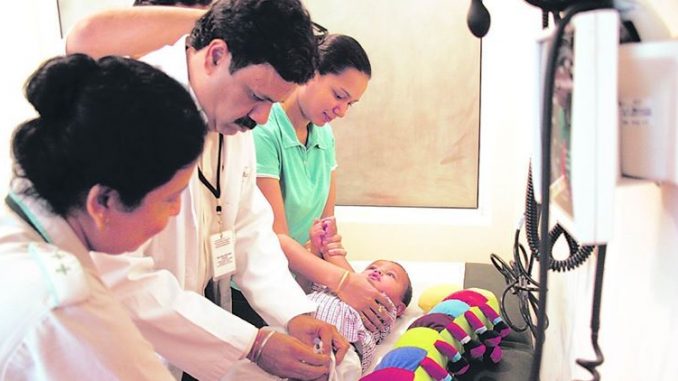A recent study published in Lancet has estimated almost 58,000 babies die in India each year from antibiotic resistance bacteria or superbugs.
“Almost one quarter of Indias health care centres do not have a water supply and 41 per cent do not provide adequate sanitation,” it said in a release.
The release was issued ahead of the meeting of the health ministers of UN member states in Geneva for the annual World Health Assembly, where discussions on tackling antimicrobial resistance are expected to figure prominently.
Referring to a recent study by the London School of Economics and Political Science which has found almost half a billion cases of diarrhoea are treated annually with antibiotics in India, Nigeria, Indonesia and Brazil, WaterAid said the study has “found this could be cut by 60 per cent by improving peoples access to clean water and safe sanitation.”
Progress on bringing clean water, sanitation and hygiene to developing nations is too slow and is not being sufficiently linked to efforts to tackle the crisis of antimicrobial resistance, it said.
Analysis by the UN revealed aid commitments to water and sanitation have fallen sharply since 2012 despite an international target to reach everyone, everywhere with access to clean drinking water and toilets by 2030.
WaterAid Indias Policy Manager on WASH in Health and Nutrition, Arundati Muralidharan said, antimicrobial resistance can seriously undermine the significant progress India has made in reducing deaths among mothers and their newborns.
“Along with medical and pharmaceutical interventions, improvement in water, sanitation and hygiene (WASH) services have the potential to contribute towards Indias efforts to combat antimicrobial resistance,” Muralidharan said.
Source: India Today


Leave a Reply